Emotional decision: How martial law deepened South Korea's political crisis
 Photo: A protester in Seoul calling for the resignation of President Yoon Suk Yeol (Getty Images)
Photo: A protester in Seoul calling for the resignation of President Yoon Suk Yeol (Getty Images)
The abruptly declared martial law in South Korea ended just six hours later. Amid widespread condemnation, President Yoon Suk Yeol reversed his emotionally charged decision, an act that most likely amounts to political suicide.
For more information on the causes, outcome and consequences of martial law in South Korea for the country's political landscape, read the material by RBC-Ukraine.
Contents:
- Martial law for six hours: A brief chronology
- What sparked impeachment talks
- Resignations, protests, and strikes: what is happening in South Korea
- How unusual is this situation for South Korea
- Could power shift, and what would it mean for Ukraine
- Why South Korea is ready to make concessions to North Korea, Russia, and China
Martial law for six hours: A brief chronology
Unexpected events unfolded late last night. In an emergency address around 10:30 p.m. local time, President Yoon announced martial law, accusing the main opposition force, the Democratic Party, of sympathizing with North Korea and engaging in anti-state activities.
The Democratic Party holds a parliamentary majority (170 out of 300 seats), blocks government budget proposals for 2025, and demands the resignation of prosecutors and key ministers.
The South Korean Constitution grants the president the right to impose martial law during emergencies. However, Yoon's announcement landed like a bomb. In a country with a strong tradition of free speech, his decree would have banned all political activity, including protests, rallies, and party operations. It also prohibited denying free democracy or attempting subversive activities, manipulating public opinion and introduced media censorship.
Read more about this in the material by RBC-Ukraine.
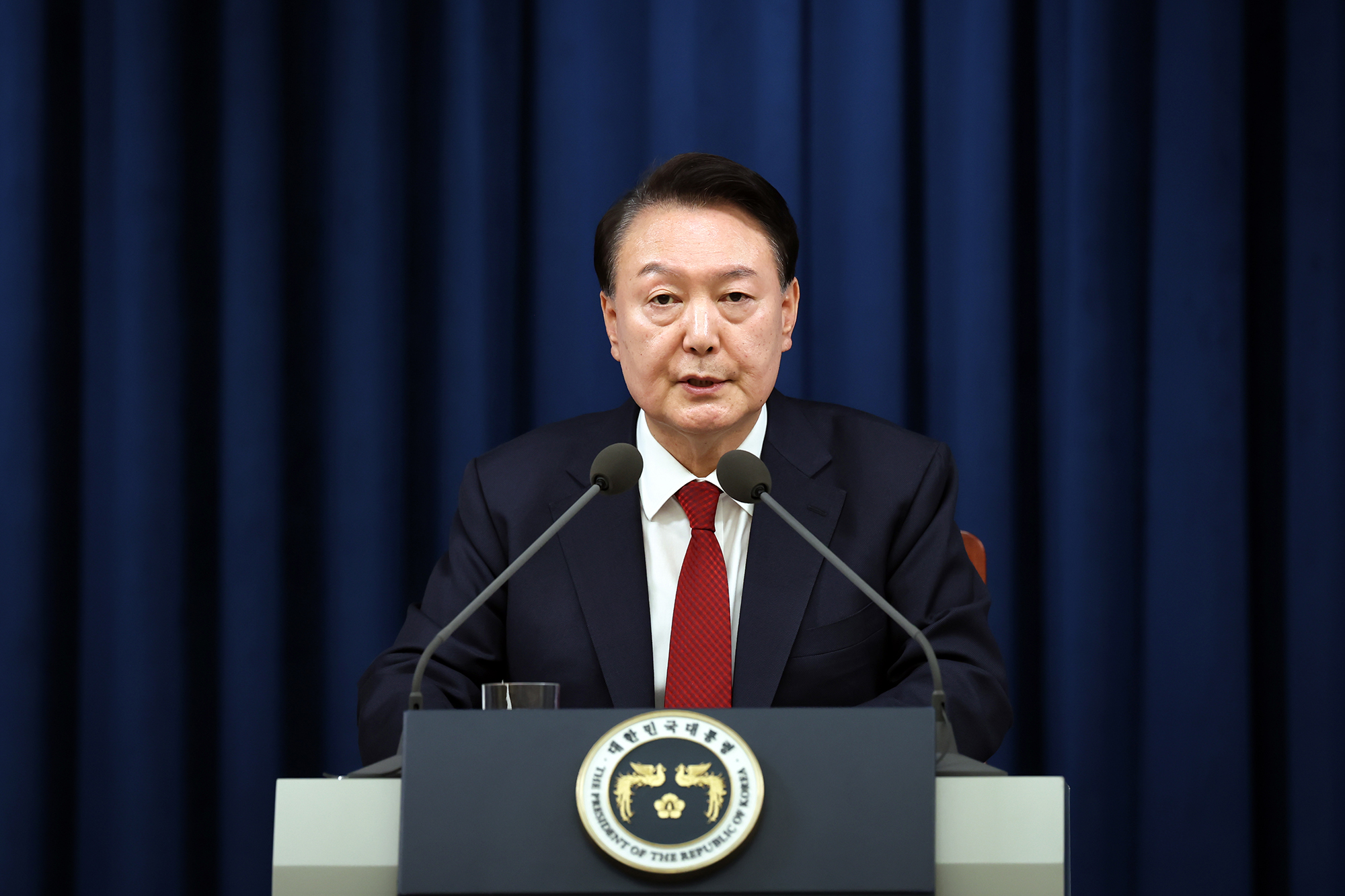
Photo: President Yoon Suk Yeol declared martial law, but revoked the decree six hours later (Getty Images)
Shortly afterward, Democratic leader Lee Jae-myung called for a public gathering outside the National Assembly. Lawmakers entered the building, pushing past soldiers, and unanimously voted in an emergency session to lift martial law. Under the constitution, the president must comply.
All political blocs, including members of Yoon's People Power Party (holding 108 out of 300 seats), united against him. Party leader Han Dong-hoon apologized to the public and demanded explanations.
At around 4:30 a.m., Yoon announced the lifting of the martial law decree and ordered the military to withdraw from parliament. However, he continued to accuse the Democratic Party of sabotaging government actions and called for an end to "legislative manipulation."
Shortly after, Yoon's cabinet officially canceled martial law. The opposition announced plans to investigate the president's actions and threatened to initiate impeachment proceedings, accusing him of treason.
What sparked impeachment talks
For months, South Korea has been in a political deadlock. In the April elections, opposition parties secured a parliamentary majority. These elections were seen as a referendum on the sitting president, whose popularity has plummeted after a series of scandals since taking office in 2022.
The conservative Yoon is in conflict with the opposition over numerous policy issues. He demanded the passage of laws to fulfill campaign promises, such as tax cuts and easing business regulations.
Meanwhile, the opposition seeks to impeach several government officials, including the head of the broadcasting oversight body, the chief state auditor, and several prosecutors. The prosecutors have been criticized for not indicting Yoon’s wife, who has been embroiled in a scandal involving corruption and stock manipulation.
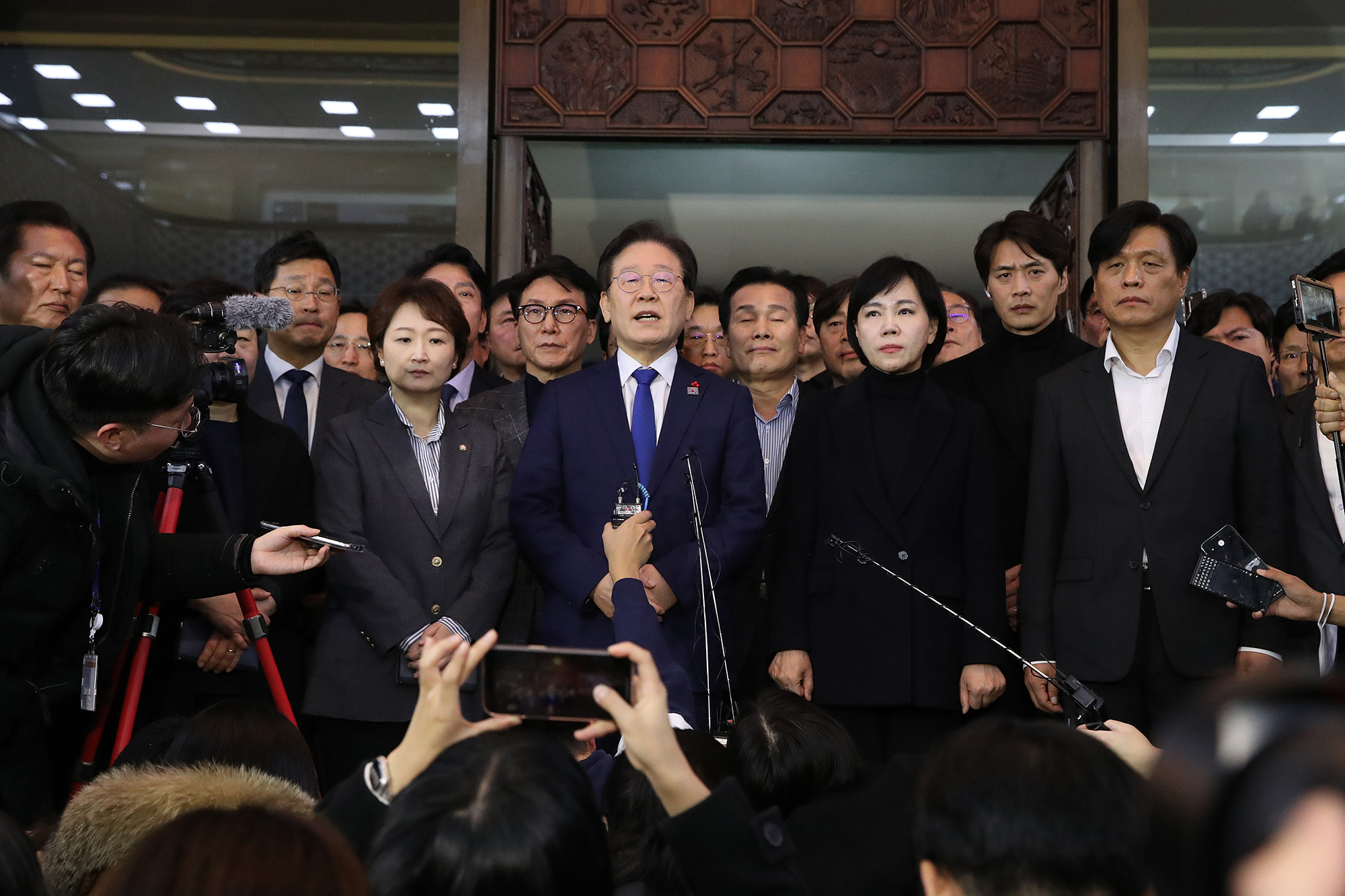
Photo: Lee Jae-myung, leader of the opposition Democratic Party (Getty Images)
Additionally, the opposition proposed cutting next year's budget expenditures. Yun regarded this as anti-state activity and, with the imposition of martial law, aimed to restore order. However, it only intensified the political chaos.
Today, six opposition parties submitted a bill for the president’s impeachment. "This proposal must be discussed before the parliamentary vote, which may take place on Friday," said Democratic Party lawmaker Kim Yong-min.
The bill is expected to be introduced at the plenary session on Thursday, with the vote scheduled for Friday or Saturday. To declare impeachment, support from more than two-thirds of the 300 members of the National Assembly is needed - at least 201 votes. If the decision is approved, it will be reviewed by the Constitutional Court, where six out of nine judges must support it.
During this period, Yun will be suspended from presidential duties. The process may take several months. The responsibilities will be transferred to Prime Minister Han Duck-soo.
Resignations, protests, and strikes: what is happening in South Korea
President Yun has faced impeachment calls before. Protests demanding his resignation have regularly occurred in the country, with petitions gathering hundreds of thousands of signatures. But now, his future in office is genuinely at risk.
As reported by his office, Yun’s chief of staff and more than a dozen officials have resigned. Within hours, Defense Minister Kim Yong-hyun also announced his resignation.
"I take full responsibility for all incidents related to martial law and express my gratitude to the president," he said.
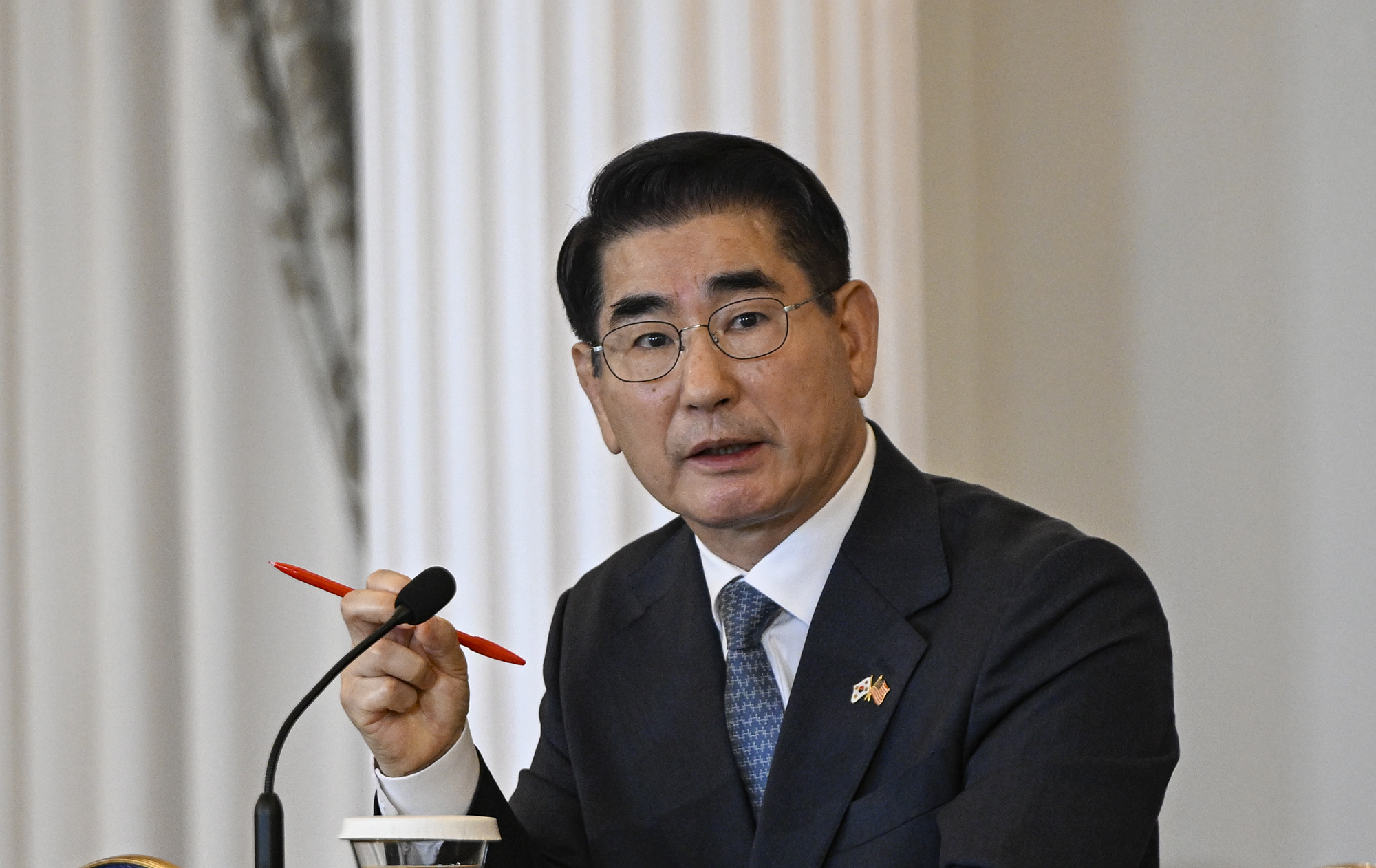
Photo: Defense Minister Kim Yong-hyun took full responsibility and resigned (Getty Images)
According to him, he personally suggested to Yun the imposition of martial law. Furthermore, the Minister emphasized that all military personnel involved in implementing the measures followed his instructions, so they should not be persecuted.
Meanwhile, protests continue on the streets of Seoul. Thousands of demonstrators came out with placards calling for the president's resignation. The protests are led by Democratic Party leader Lee Jae-myung, and his supporters are holding a rally near the National Assembly building.
Currently, Seoul is calmer compared to the scenes from last night. However, it is expected that up to 30,000 people could join the protests in response to Lee’s calls.
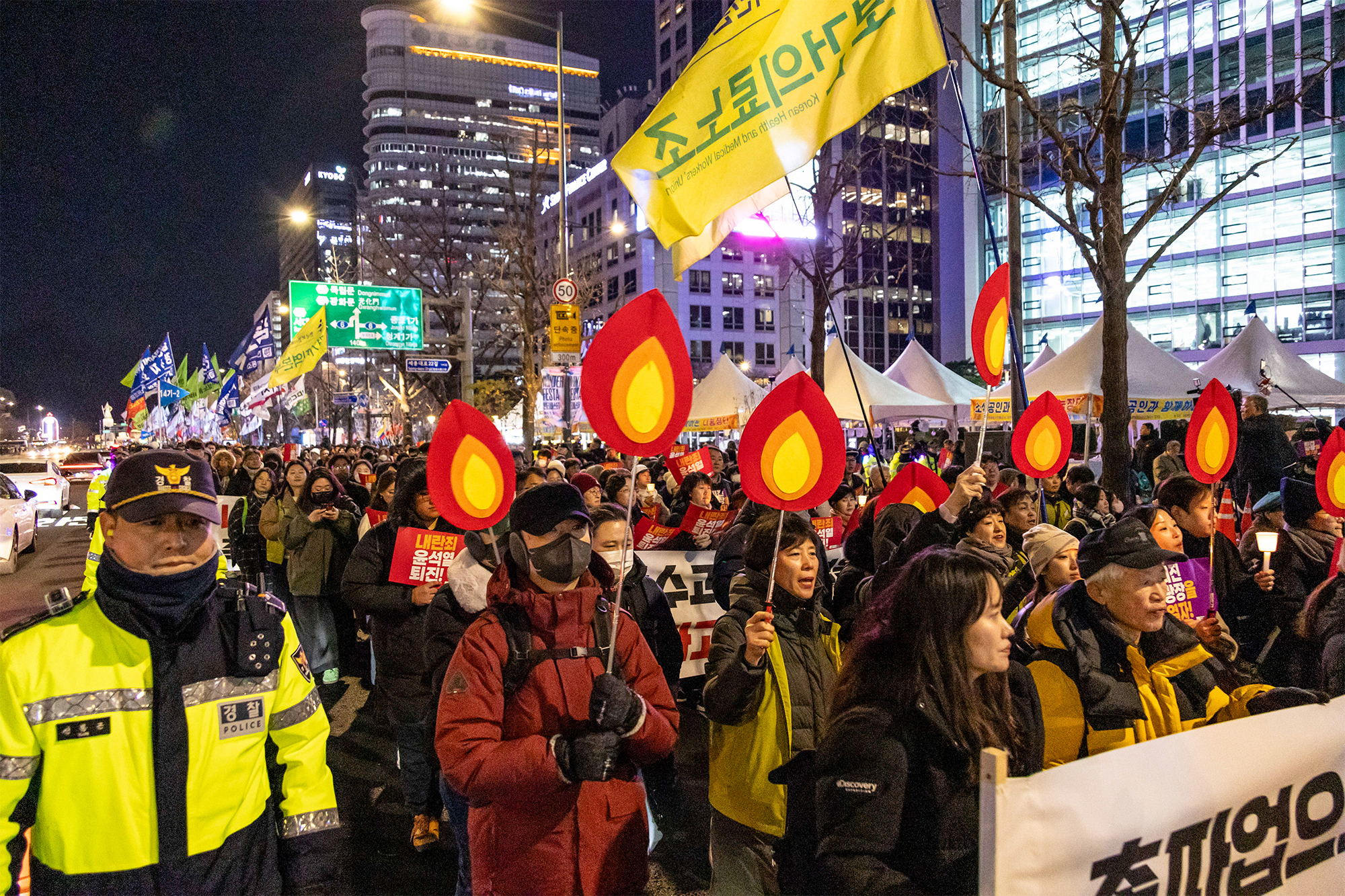
Photo: Protests in Seoul demanding the president's resignation (Getty Images)
The country's largest trade union, Hyundai Motor, has announced a four-hour strike tomorrow and the day after if Yun does not resign voluntarily.
How unusual is this situation for South Korea
South Korea has been a vibrant democracy since the 1980s, with the right to protest, freedom of speech, free elections, and a peaceful transfer of power. Therefore, the imposition of martial law was a shock in the modern era when the country became a major exporter and cultural center, partly due to the global popularity of K-pop and K-drama. However, the country has a dark political past.
For much of the Cold War, South Korea was ruled by authoritarian leaders who resorted to martial law to maintain power. The last time martial law was declared was in 1980. It was only in 1988 that South Korea elected a president through free elections. The memory of dictatorships is still fresh, so today's protesters are fighting against the abuse of power.
At the same time, the current events cannot be considered purely domestic, believes Artur Kharytonov, president of the Liberal-Democratic League of Ukraine public organization, which works on strengthening ties with Asian countries.
"South Korean politics influences global processes. China, North Korea, and Russia have been actively involved in undermining South Korean democracy," he told RBC-Ukraine.
According to him, yesterday's events were, in one way or another, a result of the Democratic Party's cooperation with autocracies, at least from its leader Lee Jae-myung, who is accused of corruption and ties with North Korea.
Could power shift, and what would it mean for Ukraine
"Whether Yoon's decision to impose martial law was fair or not is difficult to comment on," says Kharytonov. "But it is definitely linked to the actions of the opposition, which, let me remind you, is blocking the provision of lethal aid to Ukraine," he emphasized.
In his opinion, Yoon's impeachment is highly likely, considering how easily lawmakers voted to lift martial law. It is also likely that securing the two-thirds majority needed for impeachment will not pose significant challenges.
"This would mean a political shift in South Korea, turning its back on global security alliances and abandoning cooperation with Japan. It would also close the window of opportunity for Ukraine to interact with South Korea, which currently exists under Yoon's administration," he noted.
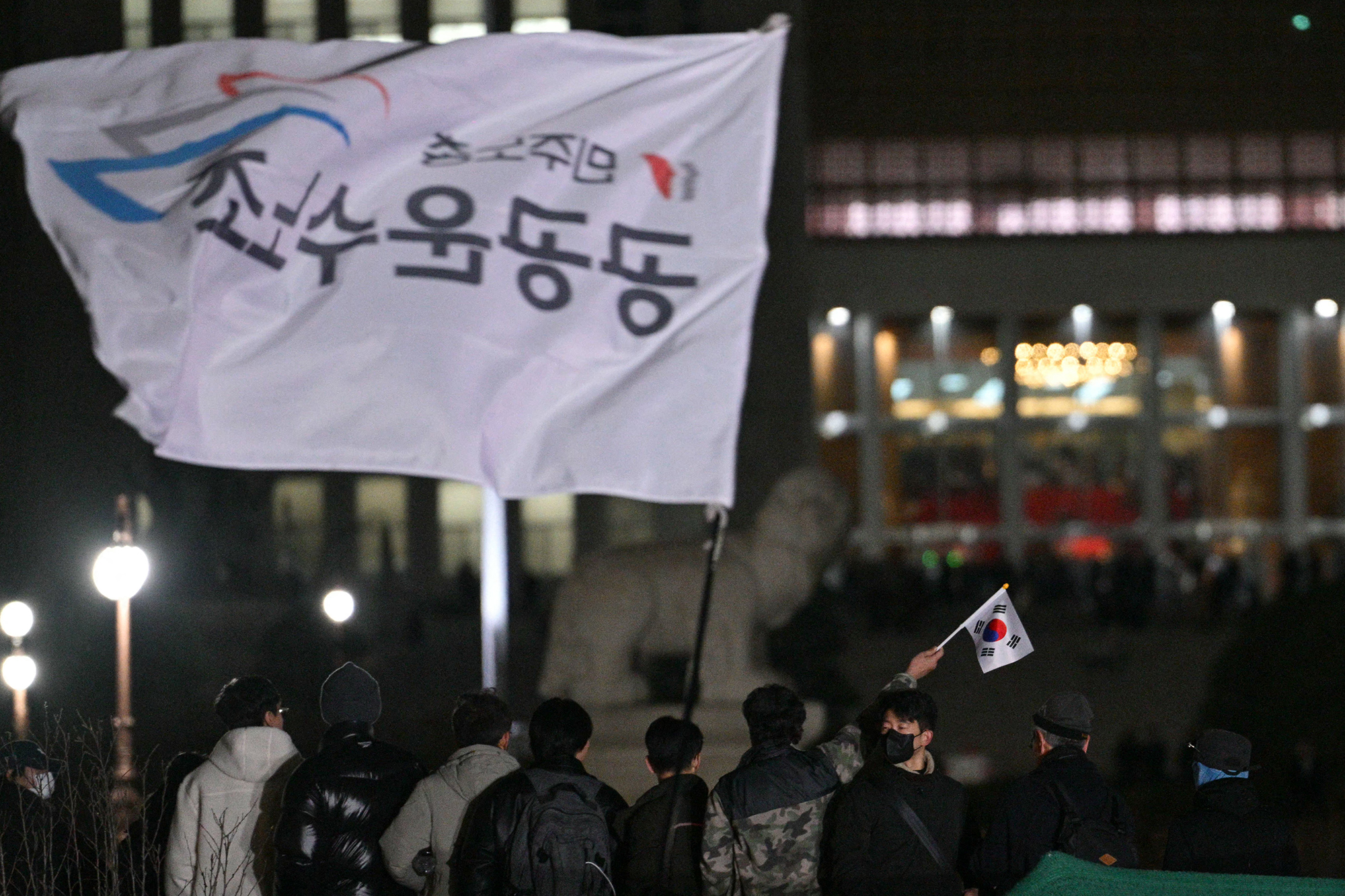
Photo: The change of power in South Korea will close the window of opportunity for military cooperation with Ukraine (Getty Images)
It is unlikely that the destabilization is related to President Yoon's miscalculations. The popular opposition in the country generally advocates for closer ties with autocracies and pacifism. They believe that for South Korea's security, concessions must be made to China, Russia, and North Korea.
"For example, this means cutting military budgets and abandoning some defense processes. So there was some logic in Yoon's actions when he said that the Democratic Party is blocking the security budget and paralyzing the state system with constant impeachments of top officials, judges, and prosecutors investigating their corruption," said Kharytonov.
According to preliminary conclusions, it can be said that Yoon's emotional decision was driven by fear that the opposition would place South Korea in a situation where it could not defend itself.
"And today, North Korea is preparing to launch an offensive with Russia, which, according to the new agreement, has the right to station troops on North Korean territory. Therefore, the situation is unprecedentedly critical," Kharytonov added.
Why South Korea is ready to make concessions to North Korea, Russia, and China
South Korean society is divided. As shown by the results of the 2022 presidential elections, the votes between Yoon and Lee were nearly split 50/50. That is, half of the population supports deterrence, democracy, and alliances, but there are those who say that Kim Jong Un, Vladimir Putin, and Xi Jinping should not be provoked, explained Kharytonov.
"I think Ukrainians are familiar with this position. The Democrats say that neutrality should be maintained so that autocracies do not attack. On the other hand, they visit Beijing and hold talks with the Communist Party of China, send people to Japan for protests against the Fukushima nuclear plant with slogans claiming that Japan is poisoning the Pacific Ocean. This narrative comes from only two countries – China and Russia," he noted.
Lee Jae-myung held a press conference last year criticizing the US and the South Korean government at the Chinese Embassy in Seoul.
"This says a lot about a person who allows himself to criticize the President and the administration of Joe Biden, essentially from Chinese territory. They (the Democrats - ed.) have the concept of the so-called Sunshine Policy aimed at reconciliation with North Korea. How realistic is friendship and love with Kim? I think this is very obvious to Ukrainians. But not so obvious to South Koreans, who are very afraid of war," Kharytonov concluded.
***
It is possible that if Yoon is impeached, the six-hour martial law could end with criminal prosecution. At least, in South Korea, there is a strong stereotype that presidents are removed and imprisoned.
Yoon's predecessor, Moon Jae-in, is a suspect in a bribery case linked to a scandal involving the hiring of his son-in-law. Moon pardoned his predecessor, Park Geun-hye, who was sentenced to 20 years for bribery and abuse of power.
Sources: materials from Yonhap, Chosun, CNN, Sky News, and comments from the president of the public organization Liberal Democratic League of Ukraine, Artur Kharytonov.

